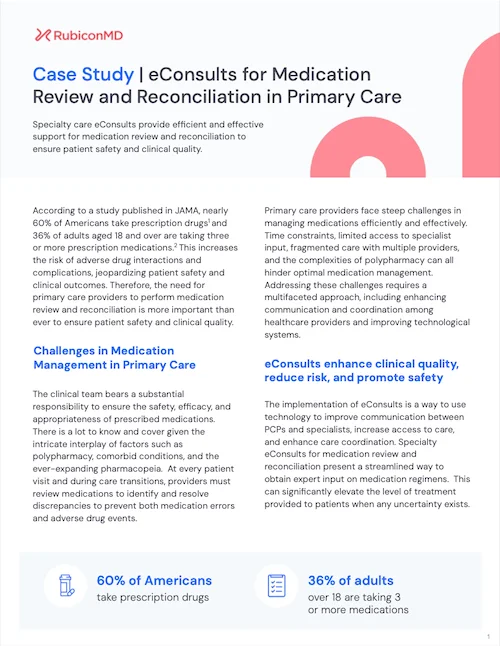eConsult Transcript
PCP submission
50 year old female RN who works the night shift with recurrent headaches that are worsening in frequency and duration. The patient shares they progress to migraines and she has light sensitivity and nausea. Unremarkable neuro exam. MSK exam reveals decreased neck flexor/extension strength. Medical conditions include thyroid cancer and now hypothyroidism, uncontrolled GERD, pacemaker, osteoarthritis, obesity, and anxiety. History includes kidney stones. She currently takes omeprazole 20 mg BID, duloxetine 90 mg daily, gabapentin 400 mg twice daily and 800 mg at bedtime, and sumatriptan 100 mg as needed at the onset of migraine. Originally she was getting relief from the sumatriptan but she no longer is. We have also trialed magnesium glycinate 600 mg nightly, fish oil, turmeric, riboflavin 400 mg daily, and ubiquinol 200 mg daily but without a noticeable difference. She does mention she has been seen in the past by neurology for trigeminal nerve block and had great relief with no headaches for several years. I would like to start her on preventive medication. I am hesitant to prescribe Topamax given her history of kidney stones. I don’t believe propranolol would be a good choice given her history of pacemaker. I also don’t want to prescribe Effexor since she is already on an SSRI. She is also seeing PT and counseling.
Would you recommend starting amitriptyline or nortriptyline as a next choice? What next steps do you recommend for this patient?
Specialist response
I think nortriptyline is a great choice. I’d start slow, and increase gradually up to as high as 150mg daily as long as you think that’s acceptable with concomitant duloxetine. I agree topiramate is best avoided with kidney stones. Why does she have a pacemaker? If she is actually paced, the propranolol should not have any effect on her HR, but I don’t know the underlying details of her cardiac history – consider running this past cardiology because I think propranolol would otherwise be another good option for her if the nortriptyline is not effective. If the sumatriptan is no longer helpful, I’d move on to another triptan. Rizatriptan would be a good next choice. An additional important thing to keep in mind with worsening headaches is the possibility of medication overuse (rebound) headaches. This pattern tends to develop when any prn medications (including triptans) are used more than 2-3 times per week or 10 times per month, in combination. Naproxen is a slightly longer-acting prn medication that is felt to be less associated with the development of rebound headaches and is therefore preferred over ibuprofen, tylenol, or other OTC medications marketed for headache. Trigeminal nerve block is an unusual treatment for migraine-type headaches. Could she be confusing this with occipital nerve blocks? With her significant neck pain these could be considered, though the biggest obstacle will be obtaining insurance approval. Either way (trigeminal vs occipital), if it worked in the past, it’s a great idea to try again now. I’m happy she is already seeing PT, as this can be helpful for cervicogenic headache. You could also consider a trial of a low-dose muscle relaxant prior to bed, though this isn’t an ideal long-term treatment. Please let me know if you have any additional questions or concerns!
